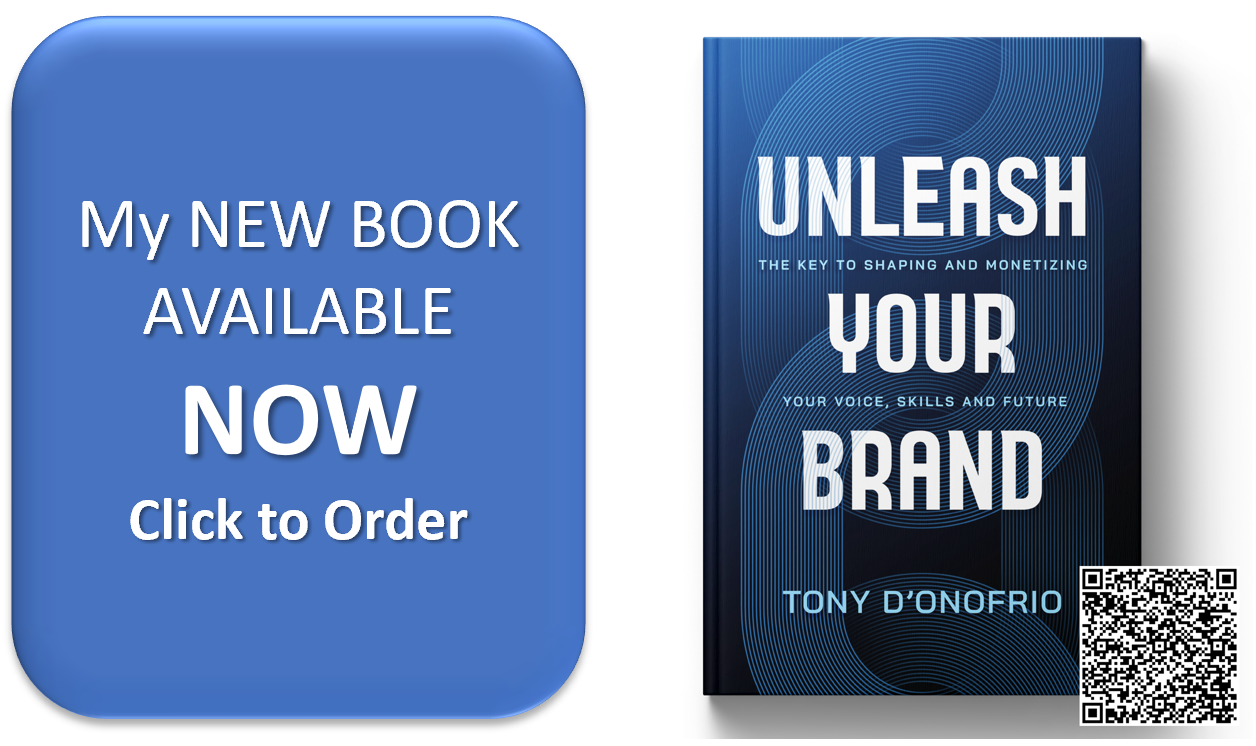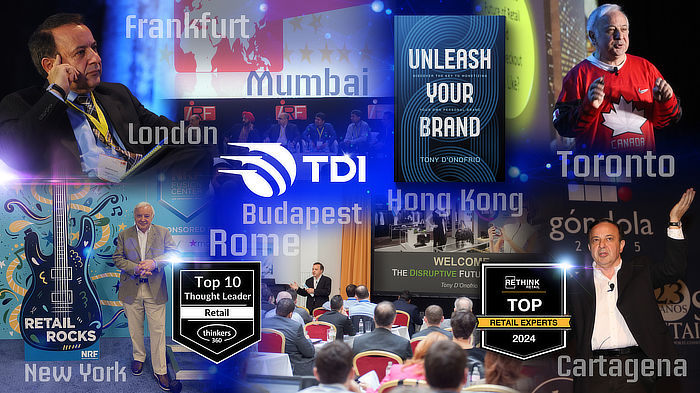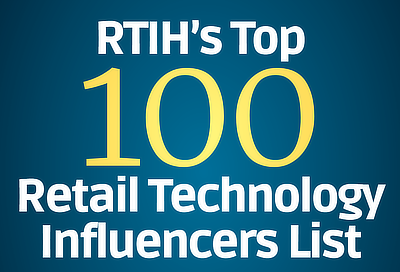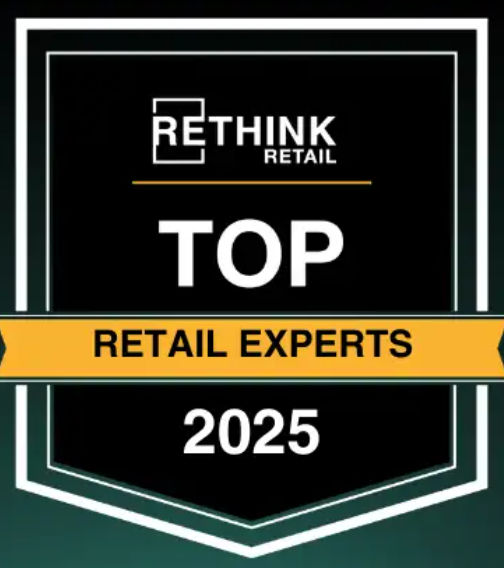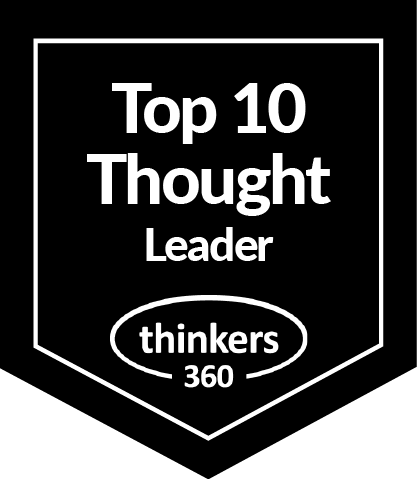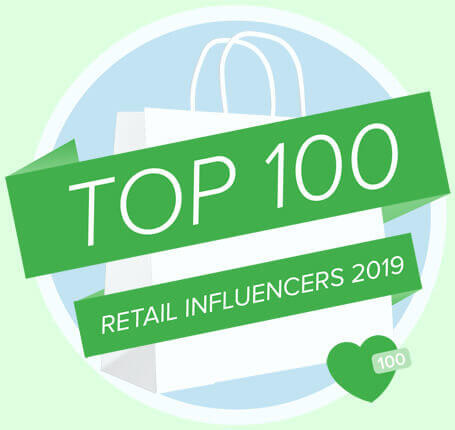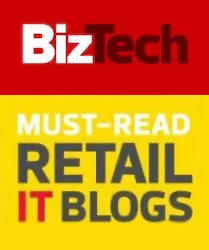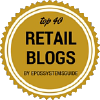Blog
The Apple Innovation Model - $7 Billion in 2003 to $171 Billion in 2013
Several recent articles were a great reminder that with the accelerated pace of technology adoption, all business models can be quickly disrupted. Global mobile connectivity, virtual marketplaces, social media, and bypassing linear technology adoption approaches are a few of the trends reshaping the current global economy.
quickly disrupted. Global mobile connectivity, virtual marketplaces, social media, and bypassing linear technology adoption approaches are a few of the trends reshaping the current global economy.
To access a broader market, innovative companies are breaking apart traditional value chains in legacy businesses and targeting higher margin niches to faster growth.
The Industries Apple Could Disrupt Next
"Apple has seemingly served as an anomaly to the theory of disruptive innovation. After all, it grew from $7 billion in 2003 to $171 billion in 2013 by entering established (albeit still-emerging) markets with superior products — something the model suggests is a losing strategy."
- Details
The Five Future Megatrends Affecting the Region
Regular trips to Asia, retail customer meetings, APAC industry keynotes, and recent business articles confirm that economically China is  going "Back to the Future".
going "Back to the Future".
Before USA surpassed it in 1890, China was the world's largest economy. By the end of 2014 China is on track to become the world's number one economy once again. This crowning achievement is arriving 5 years earlier than originally projected by the IMF.
It took 155 years for the UK to double its GDP with about 9 million people in 1870. The USA and Germany took 30 to 60 years with tens of millions of people. China and India, with 100 times the number of people than the UK doubled their GDP in one tenth of the time.
Asia Market / Technology Trends
By 2030, the majority of the world’s population will be considered middle class. China and India will have the largest middle class consumption as a share of the world's total population.
- Details
Emerging Markets, Technology Welcomes You to Modern Retail
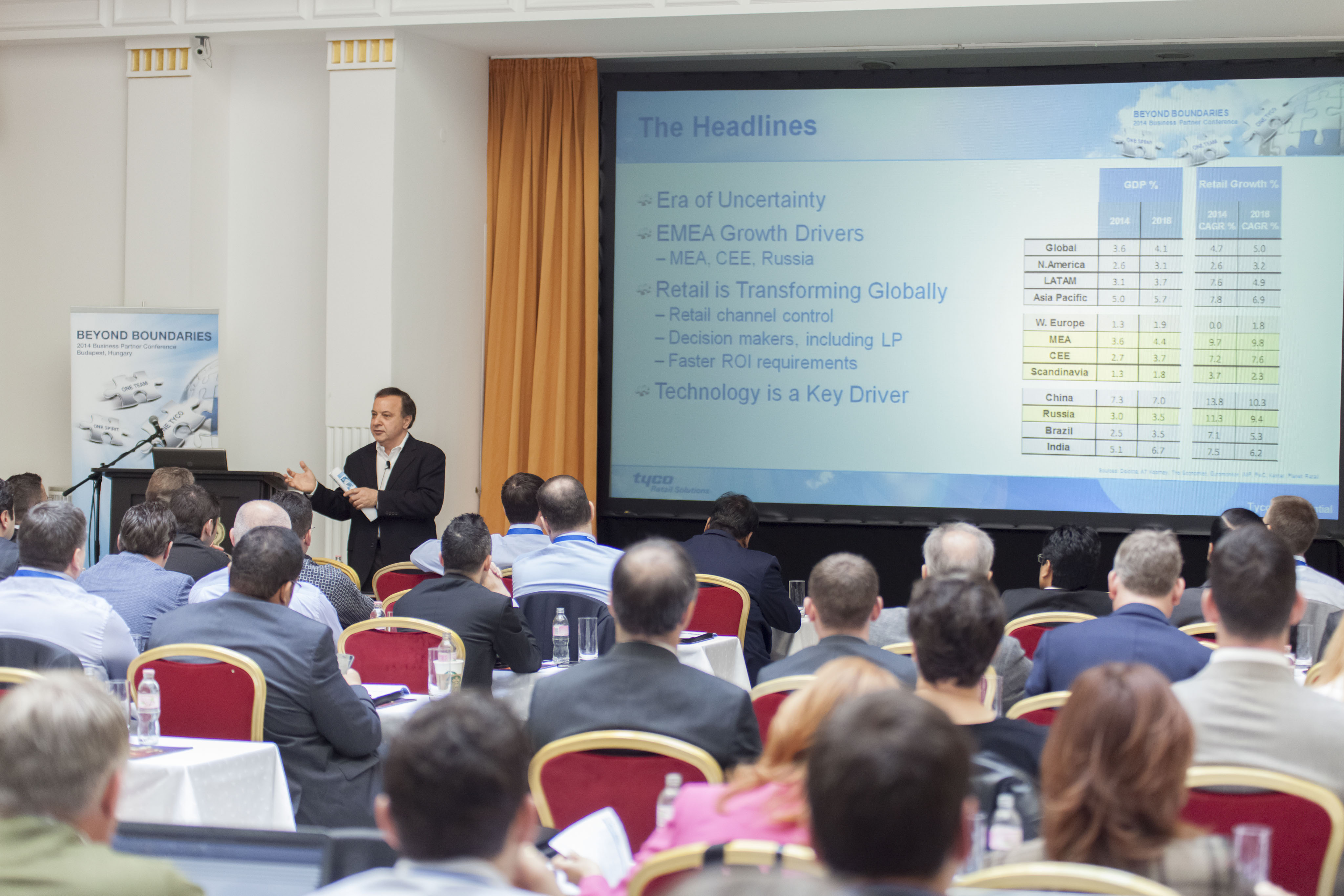 Earlier this month had the pleasure to speak to 100+ business leaders from Central, Eastern Europe, Scandinavia, Russia, and the Middle East at a conference in Budapest Hungary. This week's post summarizes some of the key insights from my presentation titled "The Future of Retail".
Earlier this month had the pleasure to speak to 100+ business leaders from Central, Eastern Europe, Scandinavia, Russia, and the Middle East at a conference in Budapest Hungary. This week's post summarizes some of the key insights from my presentation titled "The Future of Retail".
European Market Analysis
In EMEA, only the Middle East and Eastern Europe have 2018 retail growth forecasts that outpace the rest of the world. The Middle East is the only region in EMEA where 2018 GDP will grow faster than the world aggregate.
Russia is experiencing some spending slowdown, but it is still an attractive market. The country has become more mature in modern retail and consumers don't necessary fully cut spending during turbulent times. Moscow and St. Petersburg are increasingly saturated, but other cities offer opportunities. 42 cities in Russia have more than 500,000 people. Modern retail shopping space for the size of the country is still in short supply. The food sector is experiencing double digit growth and consumer electronics are growing 30%. Luxury brands see Russia as a key market with wealth increasing.
- Details
The brand consultancy agency Interbrand recently published the "Best Retail Brands 2014" report. Quoting directly from the document, 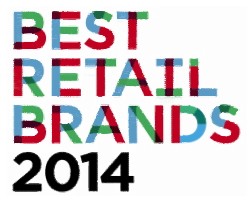 following are key ideas from the 136 page report.
following are key ideas from the 136 page report.
North America
Analysts predict that Amazon will soon carry more than 85% of the products sold at leading retailers, including grocery, at better prices, with more delivery and payment options. A fully functional mobile presence is a given for every brand; the new onmichannel reality has led to a rise in "connected stores for connected customers." While e-commerce sales continue to grow 10% per year, questions about the role of brick and mortar seem to be largely resolved. The store is now a brand experience that drives revenue across all channels.Europe
- Details

For the past four weeks, a special family moment keeps replaying in my mind. While spending time with my again parents in Italy, I made it a priority to visit my ailing Godfather Uncle Ralph.
Standing next to his hospital bed, we briefly reminisced about the old times, the great Italian card games, the many toasts to a healthy future, the family reunions in his favorite place in the mountains, and the mutual immigrant journeys on multiple continents.
At one point in the conversation, my frail Godfather reached for my hand. Abruptly words melted into silence. Holding hands, we stared into each other's eyes and I started stroking his arm. Our simple handshake was now speaking volumes. Silently, my Godfather was saying goodbye to a lifetime of enduring mutual experiences.
Sadness engulfed our family as less than two weeks later my Godfather passed away.
The somber news led to reflections on five key exemplary lessons of "Greatness" from the celebrated life of my Godfather, Raffaele D'Onofrio.
- Details
In an attempt to be closer to one of the global centers of technology innovation, a growing number of retailers are investing in Silicon Valley. Couple examples from the more than a half dozen retail companies making the IT move to California and the innovation gold they are  trying to mine:
trying to mine:
The growing trend of retailers shaping their own technology development journey is not limited to California:
- Details
Welcome to the Twitter Generation
 "A tagline is a slogan that succinctly, memorably, and descriptively sums up a company or product. The art of crafting one is quite complex....A well-constructed slogan can endure in the minds of consumers for years; some taglines have actually outlived their products."
"A tagline is a slogan that succinctly, memorably, and descriptively sums up a company or product. The art of crafting one is quite complex....A well-constructed slogan can endure in the minds of consumers for years; some taglines have actually outlived their products."
From headlines to taglines, great messaging is composed of exiguous creative words that transcend time. Combining key words into memorable lines started in literature, and then transitioned to other media such as newspapers, radio, movies, and television. The advertising industry turned taglines into a business.
Can you name the company represented by these advertising taglines?
- Details
Throughout history, retail technology has evolved in waves. With the industrial revolution and mass manufacturing, the mom & pop store transitioned to the supermarket. The massive amount of data on shipping trends, i.e. what's selling, placed the manufacturers at the center of controlling the information to drive retail sales.
supermarket. The massive amount of data on shipping trends, i.e. what's selling, placed the manufacturers at the center of controlling the information to drive retail sales.
Bar code scanning in the 1970s transitioned the knowledge power base to the retailer. The planogram, i.e. what to actually place on the shelf for sale, was now a retailer decision.
As discussed in a previous post, we are currently in the middle of the next major evolutionary technology wave re-shaping the retail industry. The foundational elements driving the new retail megatrends include:
- Details
"Too many people think they know how to lead, not fully understanding what that really means. Foundational elements of great leadership include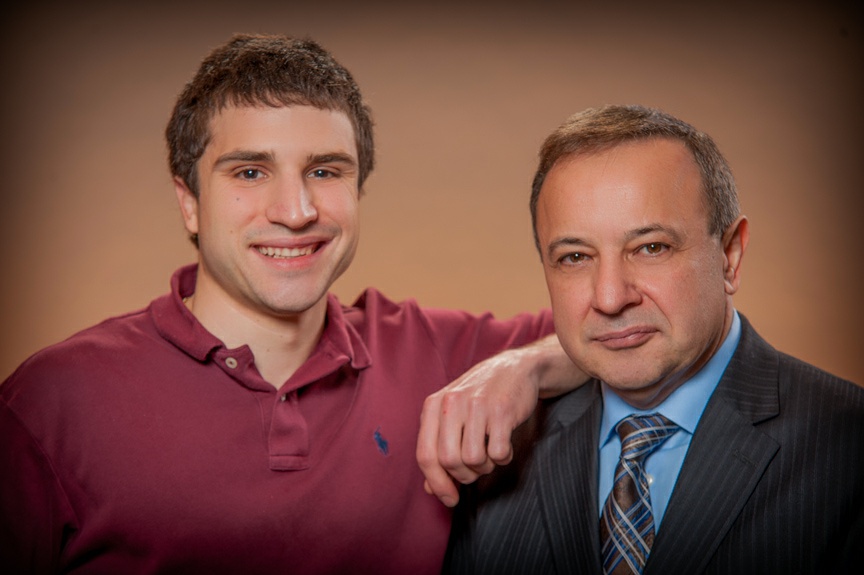 willingness to work with others, readiness to cooperate, achieving common success goals, and building strong teams. Poor leaders want the position for the power. Exceptional leadership derives from confidence in yourself, knowing who you are, building on your strengths, and leveraging team members to mitigate your weaknesses. Leadership is a team sport." -- Michael D'Onofrio
willingness to work with others, readiness to cooperate, achieving common success goals, and building strong teams. Poor leaders want the position for the power. Exceptional leadership derives from confidence in yourself, knowing who you are, building on your strengths, and leveraging team members to mitigate your weaknesses. Leadership is a team sport." -- Michael D'Onofrio
A Poem on Leadership from guest blogger, my son, Michael Anthony D'Onofrio
- Details
Lessons from the Google Acquisition of Nest Technologies
In January, the Economist published a special report on the evolution of technology which they titled "A Cambrian Moment". The premise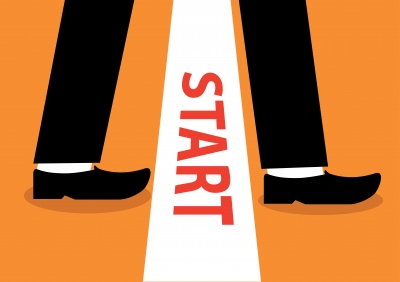 of the special report is that "cheap and ubiquitous building blocks for digital products and services have caused an explosion in (tech) start-ups." The magazine compares the current convergence of technology trends to the "Cambrian explosion" 540 million years ago when life forms began to multiply.
of the special report is that "cheap and ubiquitous building blocks for digital products and services have caused an explosion in (tech) start-ups." The magazine compares the current convergence of technology trends to the "Cambrian explosion" 540 million years ago when life forms began to multiply.
- Details


